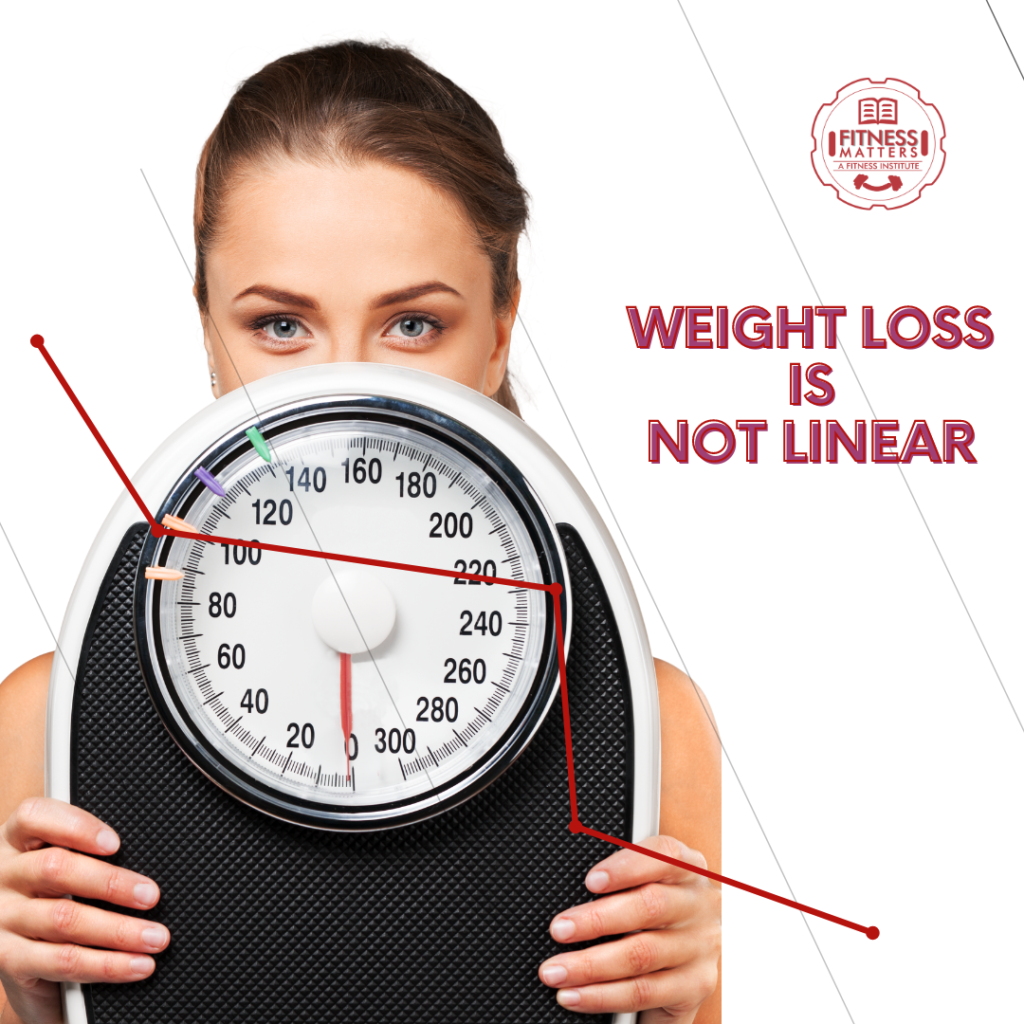
Weight loss is rewarding and rewards need to be earned.
When it comes to weight loss the primary factor comes in our mind is caloric deficit. Being in caloric deficit state doesn’t guarantee you weight loss in linear fashion.
The path to long term weight loss is a bit complicated.
During your weight loss phase some days you will lose weight and other days you will gain, or the scale will remain constant. For many people this phenomenon can be really stressful and they might end up changing their diet and training which can further lead to unwanted results.
We know that human body is the most complex machine. So, let’s understand the weight loss process in a better way. In this process there are day when you might be losing fat but weight scale can show you 500 grams of gain in body weight, while you are in a deficit. This is because weight loss does not equate fat loss and weight gain does not equate fat gain.
Body weight involves fat, muscle mass, body water, food in your gut , glycogen, water your body is retaining, bones and everything in your body.
So, body weight gain can be because of various reasons. Increased carb intake in a meal per day. As we know carbs are converted into glycogen and glycogen stores water with it. So, it can be water weight. Weight gain can also be because of excess sodium intake or because of menstrual cycle phase.
Looking at the scale everyday can be stressful for some people if they don’t know the reality of weight loss. As a coach you must explain your clients the difference between weight loss and fat loss.
If you are a beginner this is likely to be a case with you, you might see the scale constant or even going up while in a caloric deficit. That’s because you gained some lean body mass and this is what we call body recomposition.
Monitoring scale is not bad but it shouldn’t be the only thing to look at when monitoring progress especially in short term.
A small practical tip when monitoring body weight, monitor it for 1 week.so after 1 week you have 7 readings now add all those and divide it by 7, now you have an average body weight of week 1. Now continue this for week 2 and week 3. At the end you have 3 average readings to know your progress. This method is way more reliable than worrying about daily weight fluctuations. Just ensure that you weigh at the same time everyday otherwise it might create a difference.
Happy exercising.







